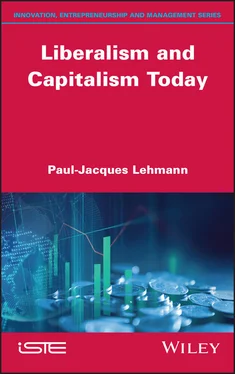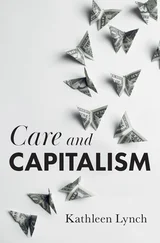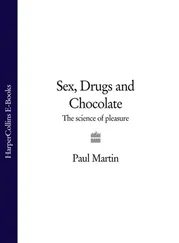– those that have been nationalized for moral or political reasons, as well as to fight against proven collusion of private companies in the sector, which brings us back to the problem of questionable unilateral decisions by public authorities;
– those that concern goods with increasing returns (e.g. in the transport and energy sectors) and which only allow the economic optimum to be reached with maximum production and in the form of a monopoly, and for which it is questionable whether they are truly efficient. For example, the railway tariff set by the state may not be the best, and competition between several companies could probably lead to lower prices on some lines. The same is true of postal services;
– those that are in competition with private companies and which have no reason to exist, because the fact that the goods and services concerned are already in the competitive sector means that they do not need to be in the hands of public authorities. As has already been pointed out, if the prices set by private companies are too high, it is up to consumers to act by refusing to accede to the diktats of certain producers, who will then be forced to revise their objectives.
The definition of public goods and their management by the public authorities is constantly evolving. This is the case for, among many other examples, the telephone or electricity, which having long been considered collective services have now in some countries become genuine private services. Similarly, when legal rules impose competition, or when public monopolies need funds that the state is unable to provide, moving them into the private domain is a good solution.
“True” liberalism rejects the existence of monopolies that annihilate the action of individuals: it is necessary to avoid the concentration of capital in the hands of very large companies that leads to the negation of individual property and the destruction of entrepreneurial freedom. Since it is people who must be privileged, they cannot be subjected to the influence of powerful groups, whoever they may be, in the economy of monopolies, private or public. One of the criticisms leveled at monopolies is that they encourage protectionism in international trade, because such a regime favors them to the detriment of consumers, whereas free trade, advocated by Richard Cobden as early as the 1830s, is beneficial for all economic actors. It is therefore logical that, in keeping with its individualistic approach, liberalism is favorable for small businesses.
The financing of public spending also remains to be considered – a problem that we will revisit in section 4.1 on capitalism today. For the moment, let us simply say that the most intransigent liberals reject, on principle, any taxation, because it involves taking resources from some people to provide them to others. In the same way, many people claim that the tax burden is incompatible with a free and balanced economy, as the behavior of agents is disturbed when individual interest no longer plays a key role. As a result, savings decrease and become insufficient to finance investment, while prices rise.
On the contrary, we will see that as capitalism develops, it rather encourages big business – if not monopolistic, then at least oligopolistic. Moreover, in many countries, public services operate in this monopolistic form, which is criticized by pure liberals in politics who believe that we are no longer in a capitalist system.
1.1.3. Democracy as a guarantee of freedom and equality
Equality is inherent in human nature. When the main activity of individuals is limited to hunting or fishing, no inequality can appear in relation to one’s neighbor since there is no visible sign that can show the superiority of one of them or of their family over another individual or over another family. For de Tocqueville (1997), “savages are equal because they are equally weak and ignorant”. He adds that even if inequality had established itself at some point, this indication could not have been transmitted to their descendants. In the following section, we will see that it was the establishment of private property that made inequalities possible.
This French politician wanted a system of authority that promotes three types of equality of human conditions: political equality, which implies the rule of law, a balance of power that guarantees the sovereignty of the people and the participation of every citizen in public life; equality of opportunity; and equality of considerations. He considered that only democracy is compatible with liberalism, which must succeed in establishing these vital forms of equality in a country, insofar as the state avoids the drifts of absolute liberalism by not facing up to its obligations as a legislator.
In his very detailed historical analysis, de Tocqueville begins by asserting that equality of conditions is inevitable because of the successes it has achieved over seven centuries: no institution is capable of stopping it. He explains the differences between aristocratic society and democratic society in the area of inequality and then equality. While inequality reigns in aristocratic society, with the rich in charge of political power, formal equality exists in democratic society, with fundamental consequences.
Social rules must be the same for everyone: individuals must be equal before the law. Beyond its moral consequences, this condition is essential for economic activity to become the main human activity. It leads to the elimination of inequalities, natural or otherwise, resulting from inheritance, birth, function and status. Thus, again, for de Tocqueville (1997), “highly civilized men can all become equal because they all have at their disposal similar means of attaining comfort and happiness. Between the two extremes is found inequality of conditions, wealth, knowledge – the power of the few, the poverty, ignorance, and weakness of all the rest”.
Equality must be based on the role that each person plays in society, which means that there are fair inequalities – for example those arising from skills, responsibilities and the merits of work, talent, effort and innovation – which are sources of progress that benefit everyone. Therefore, “reasonable” inequalities can be seen as a spur: when people see that some of their counterparts enjoy a higher standard of living than they do, they are led to make the necessary efforts to achieve the same result. Inequality is therefore indispensable as an engine of production and growth. For example, it is normal that remuneration varies if it is justified according to the influence or efficiency of the responsibilities exercised by each individual. What is necessary is equality of dignity among persons, equality of all before freedom, therefore equity and equality of opportunity, while accepting unequal merit. Otherwise, it is normal to qualify liberalism as cynicism and selfishness.
A distinction must be made between equality and egalitarianism: the latter notion has the major disadvantage of leading to a leveling down that can even be a handicap to achieving equality.
Aristocratic society is simultaneously stable, organized, closed and characterized by a permanent inequality of conditions. Inequalities are inscribed in its morals. Social mobility is almost non-existent, due to a society of order where a very strong hierarchical spirit reigns. Distinctions of birth and occupation create a permanent and impassable separation between individuals. As a totally hierarchical system reigns around them, based on obedience and authority in perpetuity, the poor know from childhood that they will be dependent on others for their entire lives and that they will therefore not be able to leave their subordinate situation. This submission goes beyond the mere stage of action; it permeates thoughts and opinions. It is all the more significant as it passes from father to son: a family of servants remains at the disposal of the same family of masters from generation to generation.
Читать дальше












